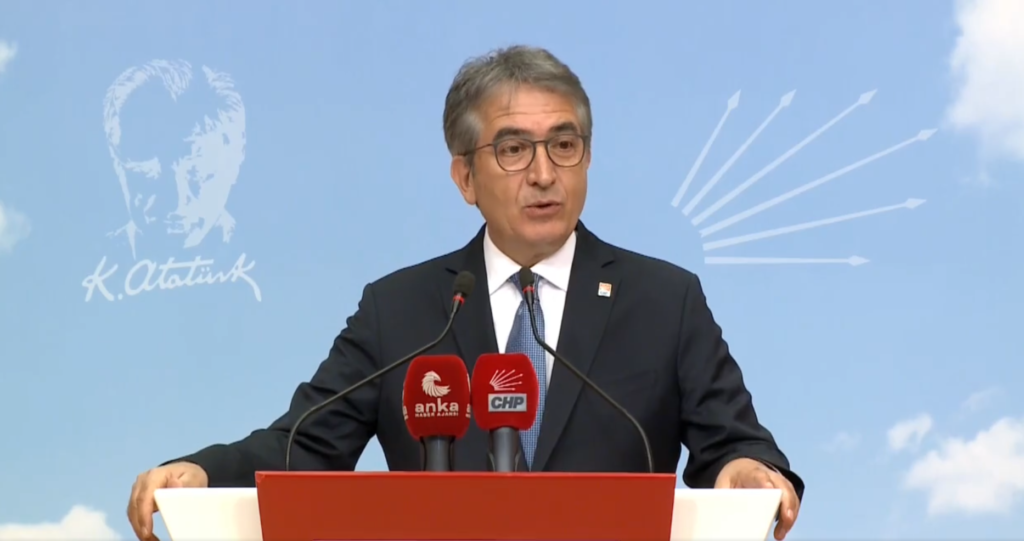Yalçın Karatepe, deputy chair of the main opposition Republican People’s Party (CHP), pointed to the continued hardship endured by low-income people in the country at a four-hour meeting with Finance Minister Mehmet Şimşek on Monday.
Karatepe spoke to journalists following the meeting and said he had conveyed his concern over the government’s economic policies to Şimşek, which he described as detrimental to low-income citizens.
The meeting was also attended by CHP Secretary General Selin Sayek Böke and Deputy Chairman Volkan Demir. The parties discussed a range of issues including minimum wage hikes, pension increases, agricultural subsidies and tax equality. Karatepe said the discussions showed the government’s unwillingness to tackle these critical issues.
Karatepe described current economic policies as “impoverishing” and highlighted their negative impact on minimum wage earners and pensioners. He pointed out that the government’s claim that the budget was insufficient was unfounded and emphasized that the funds were available and could be identified upon close scrutiny.
The CHP delegation made four main demands: an interim increase in the minimum wage, significant pension increases, an increase in agricultural subsidies and the elimination of tax inequalities. Karatepe emphasized the urgent need for these changes, especially in light of the cost of living crisis plaguing the country.
Karatepe emphasized the need to increase the minimum wage and pensions. He criticized the government’s reluctance to make these adjustments, which he considers essential to maintain the standard of living. He noted that the prescribed inflation-related increases were inadequate and called for additional adjustments.
The CHP deputy leader emphasized the importance of agricultural subsidies, describing them as “a matter of national security.” He criticized the government for not fulfilling its legal obligation to provide sufficient support to farmers.
On the subject of tax equality, Karatepe suggested adjusting income tax brackets by deducting the minimum wage from taxable income. He also criticized the high interest rates on credit cards, which disproportionately affect low-income people. Karatepe called for the abolition of the 30 percent tax on these interest payments, arguing that such measures unfairly burden those who are already struggling financially.
Karatepe called for more transparency from the Turkish Statistical Institute (TurkStat) and suggested that an independent expert advisory should audit and verify the institute’s data. He pointed to the public’s widespread mistrust of TurkStat statistics, which he attributed to the fact that the institute does not publish comprehensive data.
The meeting comes after CHP leader Özgür Özel met with President Recep Tayyip Erdoğan, who suggested that Finance Minister Şimşek meet with the opposition to discuss their concerns. Despite the lengthy discussions, Karatepe expressed his disappointment at the lack of progress and the government’s stubborn approach to economic management, which he said favors the rich at the expense of the poor.
Details of a comprehensive tax reform package proposed by the Turkish government aimed at addressing the country’s budget deficit and stabilizing the economy after last year’s devastating earthquakes were recently revealed and was labeled by observers as a “tax tsunami.”
The package includes significant changes to the value-added tax (VAT), special consumption tax (SCT) and various other levies, with a projected annual revenue impact of 181 billion Turkish lira ($5.5 billion).
The package has drawn widespread criticism since many believe that the average citizen will have to pay for the economic mismanagement and corruption of Erdoğan and his cronies.

